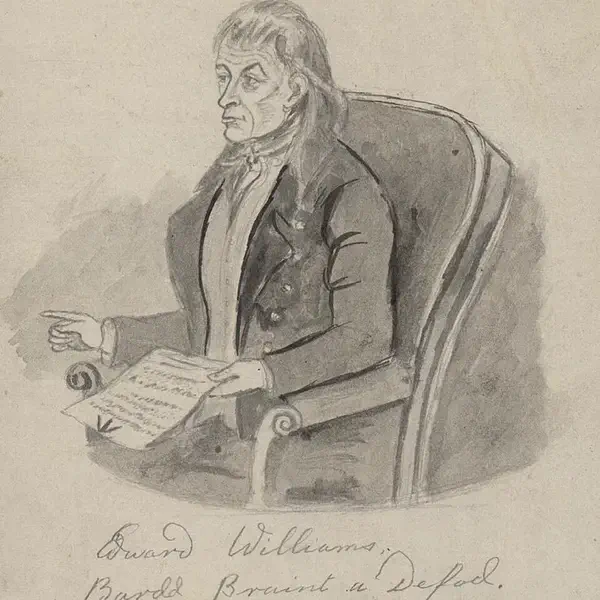
Iolo Morganwg (Edward Williams), Welsh Poet, Born
March 11, 1747
Iolo Morganwg, born Edward Williams, was a significant figure in Welsh culture and literature, best known for his poetry and for being a major influence on the Welsh Romantic period. He was born on March 10, 1747, in Pen-onn, in the Vale of Glamorgan, Wales. Morganwg was not just a poet; he was also an antiquarian, a collector, and an influential literary forger who had a profound impact on Welsh national identity and the revival of the Eisteddfod, a Welsh festival of literature, music, and performance.
Despite his contributions to Welsh culture and literature, Morganwg’s legacy is complex. He is credited with inventing much of what is today considered traditional Welsh folklore, including ceremonies purported to be derived from ancient Druidic practices. Many of these creations were later incorporated into the modern Eisteddfod tradition. However, his work as a forger has cast a shadow over his contributions, as he fabricated much of the historical evidence he claimed to have discovered about ancient Welsh bardic traditions.
Morganwg’s efforts to promote Welsh culture and identity were undeniably influential, and he remains a controversial and fascinating figure in the study of Welsh history and literature. His work laid the foundation for the 19th-century revival of Welsh national consciousness and has had a lasting impact on Wales and its cultural heritage.